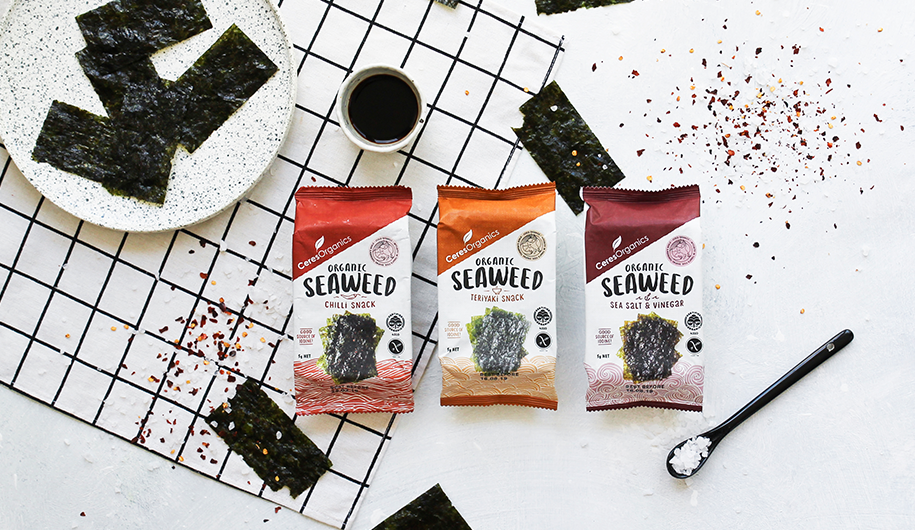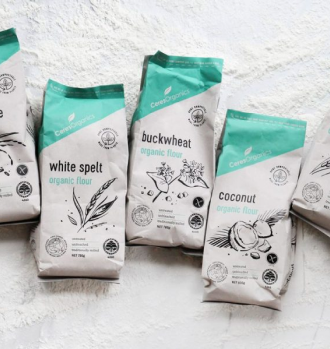
There’s more to seaweed than sushi. And, that stuff isn’t as good for you as you think - but the nori is. Here’s why you should be eating more of this superfood from the sea.
Vast and widely unexplored, the oceans are a veritable source of nutritional sustenance and among them - the edible seaweeds. Still, aside from the occasional sushi, the vast majority of us are not really eating seaweed with any frequency. Read on and you might actually find yourself kelp-ifying your food!
Seaweed, a sustainable crop
Let’s say there is a crop that requires you to plant and harvest, but not much more than that. Requires little or no input of fertilisers, fresh water resources, or medicines. It gets all it needs from its’ environment, and under optimal conditions can grow almost six inches a day. Said crop would be good for people’s health and actually leave the environment better than it found it.
That crop exists. It’s seaweed.
Seaweed farming is often considered as the least environmentally damaging form of aquaculture. Large production of seaweed for food, animal feed and biofuels could represent a transformational change in the global food security - and in the way we view and use the oceans.
However, awareness is developing regarding the environmental side effects, which may occur as a consequence of rapidly increasing seaweed cultivation globally. Any negative effects that this industry may have on coastal marine environments would need to be minimised – or this also is not sustainable.
If you have another 10-15 minutes, this article is a good read - farming the future of biofuel in the pacific. The article features a small company testing out a concept that would enable large-scale, open-ocean farming… That once economically feasible, one day could provide a source of clean, sustainable, non-polluting source of energy to compete with fossil fuels.
Eating seaweeds can help you avoid iodine deficiency
Typical Western diets are low in iodine. This is because people are restricting their sodium intake in response to the dangers of consuming excess salt, or because their diet is full of processed convenience foods. These highly processed foods contain loads of poor quality (iodine-free) salt.
When iodised salt consumption is reduced, it’s actually pretty easy for people to become iodine insufficient or deficient. Without sufficient levels of iodine, your thyroid function can become impaired, meaning it’s harder for your body to burn fat. This can lead to fatigue and weight gain.
Nori is an excellent source of iodine, so adding it to your diet at least three times a week can help keep your thyroid in check. Plus, eating nori may help reduce cholesterol levels, according to a Japanese study published in the British Journal of Nutrition.
Iodine in nori
Iodine is an essential micronutrient because your body cannot make iodine – and it is essential for the production of thyroid hormones.
Some seafood, bread (if fortified), seaweeds and some salts contain iodine. Though not all salts contain iodine so check your labels. Seaweed has a high iodine content, you don’t need much.
You simply can’t find a more concentrated source of iodine than you would in seaweed! Just 5 grams of nori is over 57% of your daily intake requirements! The recommended daily iodine intake is 150 μg in adults who are not pregnant or lactating.
While the thyroid can adjust to higher intakes of iodine, if you end up going over the recommended upper limit for adults of 1,100 μg. That much iodine can cause thyroid dysfunction.
Nori's other nutrients
Nori offers one of the broadest range of nutrients of any food, including many found in human blood! Because the chemical composition of seaweed is so close to human blood plasma, they are excellent at purifying blood.
Nori is an edible algae which turns dark green when dried. It has long been attributed to health and longevity in Asian cultures. In Korea, nori is an integral part of their culture, served as soup on birthdays and given to women for three weeks after childbirth. According to elders, it helps replenish and rejuvenate the body.
Nori nutrients include calcium, copper, iron, magnesium, manganese, phosphorus, potassium, selenium, zinc and then some! Nori can actually contain up to 10 times more calcium than milk!
Beyond that, nori is packed full of vitamins too. It offers vitamins A, B, C, D, E and K, as well as niacin, folic acid and taurine. And thanks to the level of vitamin C it contains, the bioavailability of its abundant iron content is increased.
As well as measurable amounts of polyphenols like carotenoids and flavonoids, nori contains other phytonutrients, including several types of alkaloids with antioxidant properties.
Nori also contains chlorophyll (a pigment that makes plants green) which is a powerful, natural detoxifier that can help eliminate waste products from our body.
And while nori is also loaded with fibre and protein - 24 grams of fibre and 20 grams of protein per 100 grams of nori respectively, you’d never be able to consume the quantity required because you’d overdose on iodine!
How to add seaweeds to your diet
If we were to compare seaweed to spinach, say - you find that, gram for gram seaweed isn’t as nutrition-dense. But then again, you can’t consume seaweed like you can spinach. So think of seaweed as a natural iodine supplement, adding small amounts to everyday foods. Here’s a few ideas below.
- Blend sheets of nori with a little bit of sea salt and bam! You’ve got seaweed salt.
- Sprinkle crushed up toasted seaweed snacks over your salads, or soups.
- Fill a nori wrap with tofu, baked kumara, avocado, quinoa and greens. It will be loads better for you than that 8 pack of sushi.
- Hummus or nut cheese spread over some seaweed snacks makes an awesome low carb, high protein snack.
- Of course, it can be enjoyed on its own as a crispy snack, just like a bag of chips -but way better for you.
Choose certified organic seaweed where possible
Seaweeds absorb the properties of their environment, which includes any pollutants in the water. Certified Organic seaweeds have been grown and harvested in unpolluted waters that are free from harmful chemicals. You’ll find organic seaweeds from some selected supermarkets and health food stores.








